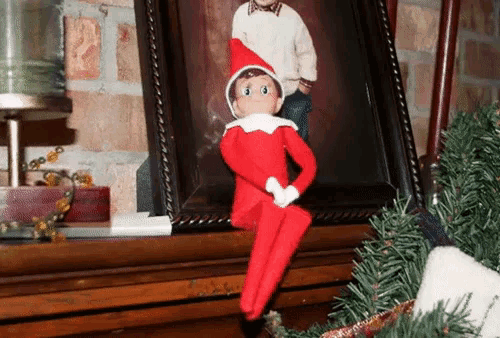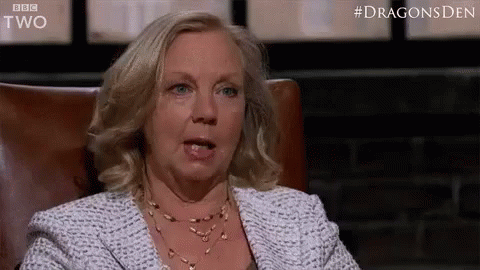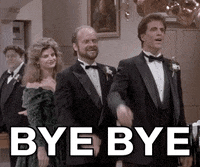Christmas Ads, Ryanair & Tea Breaks
5 in 5 - Brave & Heart HeartBeat #180 ❤️
This week, as Christmas ads come out earlier and earlier, we have been forced to debrief them with you on this fine mid-November day. Sorry.
We also look at how Ryanair seduced a generation of consumers by mocking them on social media, and discover the AI pin that will definitely not be replacing our iPhones.
Plus, the class pay gap is exposed, and could virtual tea breaks to solve remote working loneliness?
Let's get into it.
Were you forwarded this? Not a subscriber? 👉 Sign up here
#1 - What Makes A Good Christmas Ad?
Christmas ads are already out, so we’re forced to talk about them in November. We know, we apologise in advance…
While opinions are flying all over the place, what makes a good Christmas ad is all about how it makes a consumer feel, and this year’s ads have been subjected to rigorous testing to bring us the answers.
Amazon’s Christmas ad, for example, which features three elderly ladies sledging down a hill with the help of next day delivered cushions, was lambasted by Campaign magazine as “sickly-sweet… lazy storytelling” and awarded Turkey of the week.
However, when you get off your high horse and look at the actual data, according to System1 – a company which measures the emotional response to advertising – it’s the best ad Amazon have ever made, and one of the world’s most effective ads. They measured it on positive emotional response and brand recall – which is basically all any ad should be measured on. Remember, this isn’t the Oscars.
A similar experiment done for all this year’s big Christmas ads saw Coca Cola, Lego and Boots coming out on top for positive emotional reactions and brand recall, while ads starring celebrities were a flop. Think Michael Bublé’s leading role in the Asda ad and Rick Astley’s half a second cameo in the Sainsbury’s ad (which begs the question - do Asda have the bigger budget?).
And although the controversy surrounding the M&S Christmas ad is, quite frankly, mental, the data shows it simply isn’t an effective ad. The premise, in which celebrities are seen rejecting Christmas norms – including Sophie Ellis Bexter blowtorching a pile of Christmas cards (wasteful) and an elf on the shelf getting batted off a roof (fair), while not the society-ending evil that some Daily Mail readers said it was, didn’t sit well with consumers either according to the data.
Apparently the ad inspired one or more “intensely negative feelings” in almost 30% of viewers – namely “awkwardness”, “confusion” and “contempt”. That’s not really going to drive sales is it…
Basically, Amazon won by being trite, and M&S fluffed it by being edgy.
#2 - How Ryanair Became TikTok’s Sweetheart
Ryanair have 2.1 million followers on TikTok, and if you think that sounds like a lot for an airline, it is. So much so, that it’s actually half a million more than EasyJet, Jet2, Tui, Virgin and Etihad put together.
Why? Basically, for the LOLs.
Ryanair are completely savage on their social media profiles, not hesitating to call out customers who post complaints on social media, and, more often than not, agree with them that Ryanair is crap.
Ryanair’s head of social media, Michael Corcoran, recently announced his resignation on X (Twitter) and was met by hundreds of responses from people praising his brash approach, and sharing some of their favourite sarcastic clapbacks from the brand. For a budget airline, and a pretty terrible one at that, that’s impressive social reach.
The trick seems to be that they lean into their bad reputation. Corcoran notes that the main goal of the social media team, rather than sweetening up complaining passengers, was to lower their “far too high” – in his words – expectations of budget travel. Their responses to most complaints can be summed up with, you flew Ryanair, what did you expect?
Obviously poking fun at disgruntled customers for expecting more from your brand didn’t go down well with everyone, but when the humour did land, it created a pretty strong fanbase, and one of the unexpected benefits was that their online fans even started defending them against complaints – basically doing their PR for them.
Ryanair’s popularity on TikTok coincides with another equally random rise to aviation stardom on the platform, that of Jane Boulton from late 90s and early 2000s TV phenomenon Come Fly With Me. Yes, really. Clips of Jane and her no-nonsense approach to customer service on the EasyJet help desk at Luton airport went so viral on TikTok that Jane was invited onto morning telly to discuss the phenomenon.
Which generation use TikTok a lot and have less disposable income, for now anyway? Yep, the coveted Gen Z. Ryanair, while arguably being the worst airline ever, may have just set themselves up with huge brand cache for the next generation of travel consumers.
#3 - Can An AI Powered Pin Replace Your iPhone?
Critics (and sensible people) say obviously not, but some tech fans have been pretty excited about the premise.
The pin in question is a wearable device created by the company Humane, founded by two ex-apple employees, a designer and an engineer. If you google them you will come to two conclusions. 1 – they must have paid a fortune to get their company at the very top of search results for the word Humane and 2 – their website looks suspiciously like Apple’s.
A savage review of the pin from tech site Ars Technica describes it as a “$700 screenless voice assistant box… as if Google Glass had a baby with a pager from the 90s” and isn’t particularly impressed by their AI credentials, noting that all smartphone-ish devices from the last 10 years have some kind of AI in them. (This is true, by the way, OpenAI just brought the buzzword into the open).
To ask the device questions you have to press a button – it isn’t always listening and there’s no hot word like “Alexa” or “Hey Siri” and it has a laser projection system that presents a smartphone-esque UI ono your hand to show text or basic media.
The coolest feature it seems to offer is having it search through your messages, for example asking a question like “what’s the gate code that Anna sent me?”. But if that’s the best thing it can do, we can’t see it replacing your smartphone.
The biggest issue with the pin seems to be it’s operating system. Humane’s pin doesn’t have access to any app store, so you can only use the built in apps. That means if you want to listen to music you’ll have to do it via Tidal, a service which literally nobody uses, because that’s who they’ve paired up with.
And, if that code your friend sent you was via any other medium than their chosen chat services – think iMessage, Whatsapp, or Facebook Messenger – tough luck. As far as we know they can only access SMS, Slack and maybe Outlook. Fun.
Not to mention there’s an obligatory monthly mobile provider cost to pay, as even though the device can link up to WiFi, an “always-on” connection from T-Mobile is apparently necessary.
When we didn’t know anything about it apart from the buzzwords of “AI Pin replacing iPhone” we didn’t want it. Now we know more about what it actually is, we want it even less.
#4 - Exposing The Class Pay Gap
While it’s common knowledge that there is a gender pay gap problem, we don’t think as much about the possibility of a pay gap problem between different class backgrounds in the UK.
Research based on quarterly Labour Force Surveys from 2014 to 2022 shows that people from working class backgrounds have a 12% lower salary on average than people from more affluent backgrounds in the same role – with an average gap of £6000 per year for those in professional careers.
The data suggests that the 12% pay gap could be even wider than the median gender pay gap, which was reportedly at just over 9% in 2022.
However, of course, women come out at the bottom again – the class pay gap is even worse for female professionals from working-class backgrounds, who suffer a 19% pay gap in average professional salary in comparison to women from other backgrounds.
Senior partner at PwC UK, Kevin Ellis, said that the pay gap is not just a societal issue, but also an issue for business and the economy, arguing that businesses need diversity of talent and thought, which can’t be measured without taking into account socioeconomic background data.
We couldn’t agree more.
#5 - Are Tea Breaks The Key To Workplace Happiness?
Maybe, considering that Swedish workers make the top 4 of the happiest in the world, and they take their tradition of “Fika” – sharing coffee and cake with colleagues every day – very seriously.
Unlike in other work cultures, where a coffee run can often be delegated to one person and used as an excuse to talk work, the tradition of workplace Fika focuses more on taking a collective break from work.
Some workplacess are very strict with it, following the 20-year old rules of taking a Fika break every morning at 9am and every afternoon at 4pm. Now, it’s described as more ad hoc, but once a day at least.
Either way, taking the time out of every day to share the simple pleasures of coffee and cake (or tea and biscuits probably in our case) with your colleagues to talk about anything but work will definitely bring you closer together, and foster a culture where people listen to and value each other as people.
One company, who won Sweden’s “best small workplace” award this year, even kept up fika during the pandemic – when they got together for coffee and cake over teams every day.
Working remotely can be alienating. A pre-pandemic study reported that full-time remote work increased loneliness by 67%, and we’d be interested to know how our experiences throughout Covid and the changed reality of work have changed those stats for better or worse. Taking the time to talk to colleagues about something other than work might be a game changer.
We’re all busy, and if we started putting virtual coffee and cake meetings into our remote colleagues calendars it might not go down well, we’re not in Sweden, after all, where it’s already integrated into the working day, but we could definitely learn from Fika.
Maybe we can simply start by adding in a bit more chit chat here and there in our meetings, you’ve got to start somewhere…
Brave & Heart over and out.
Bonus
Disney Channel Returns
The new weirdest thing to go viral is a line from classic Disney Channel show The Suite Life of Zack and Cody, which aired between 2005 and 2008 and starred the Sprouse twins, who are Ben from Friends, and now both TV and film stars in their own right.
The line has inspired celebration across social media, as a joke about an Italian restaurant not having a reservation until November 16 2023 resurfaced in a viral TikTok (what else) and turned the day into a nostalgic national holiday for Zoomers across the web.
Congratulations to them, we hope they had a wonderful meal.
To find out more on how you can retain your top talent, or how we can help you with digital solutions to your business and marketing challenges, check out our case studies.



